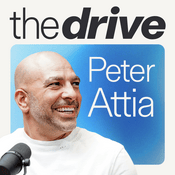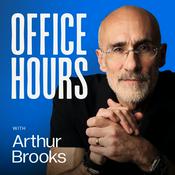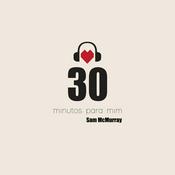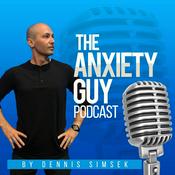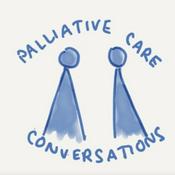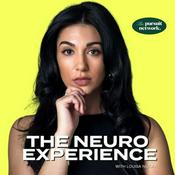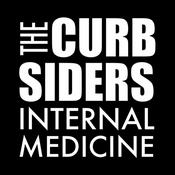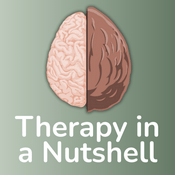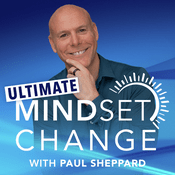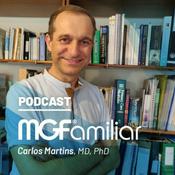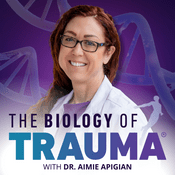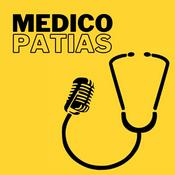86 episódios
- Welcome to PsychEd, the psychiatry podcast for medical learners, by medical learners. This short episode covers the basics of sleep hygiene.
Hosts: Jo Kikukawa (MS2) and Grant Yao (MS4)
Audio editing: Grant Yao
Timestamps:
(0:33) - Background
(2:07) - Core principles and strategies
(5:37) - Counselling on sleep
(6:18) - When to get help with sleep
(7:29) - Summary
References:
Centre for Addiction and Mental Health. Sleep disorders. CAMH.
Harvard Health Publishing. Sleep hygiene: Simple practices for better rest. Harvard Health.
Qaseem A, Kansagara D, Forciea MA, Cooke M, Denberg TD. Management of chronic insomnia disorder in adults: A clinical practice guideline from the American College of Physicians. Ann Intern Med. 2016;165(2):125–133.
Sleep Foundation. Sleep hygiene. SleepFoundation.org.
Spielman AJ, Caruso LS, Glovinsky PB. Behavioral treatment of insomnia: A clinical case series. Sleep. 1987;10(1):87–92.
For more PsychEd, follow us on Instagram (@psyched.podcast), Facebook (PsychEd Podcast), X (@psychedpodcast), and Bluesky (@psychedpodcast.bsky.social). You can email us at [email protected] and visit our website at psychedpodcast.org. - Welcome to PsychEd, the psychiatry podcast for medical learners, by medical learners. This short episode covers Types of Substances
Hosts: Sara Abrahamson, Shaoyuan Wang and Kate Braithwaite.
Audio Editing: Kate Braithwaite
References:
American Psychiatric Association. Diagnostic and statistical manual of mental disorders: DSM-5, text revision (DSM-5-TR). 5th ed. Washington, D.C.: American Psychiatric Association Publishing; 2022.
CAMH. (2013). Inhalants. Inhalants | CAMH
CAMH. (2010). Cocaine and Crack. https://www.camh.ca/en/health-info/mental-illness-and-addiction-index/cocaine
CAMH. (2012). Amphetamines. https://www.camh.ca/en/health-info/mental-illness-and-addiction-index/amphetamines#:~:text=Chronic%20use%20of%20amphetamines%20can,can%20also%20cause%20amphetamine%20psychosis.
Chae J, Marsden J and Sutherland A. (2024, August 21). Benzodiazepine Withdrawal. Emergency Care BC. Benzodiazepine Withdrawal : Emergency Care BC
ChildHealthBC. (2023, September 21). Common Street names for Substances. https://childhealthbc.ca/mhsu/common_streetnames_substances/printfile
Jauch EC. (2023, January 18) Inhalants Clinical Presentation. Medscape. Inhalants Clinical Presentation: History, Physical, Causes
Kaye, AD, Staser, AN, Mccollins, TS, Zheng, J, Berry, FA, Burroughs, CR, Heisler, M, Mouhaffel, A, Ahmadzadeh, S, Kaye, AM, Shekoohi, S, & Varrassi, G. (2024). Delirium Tremens: A Review of Clinical Studies. Cureus, 16(4), e57601. https://doi.org/10.7759/cureus.57601
Long N. (2020, November 3). GHB toxicity. Life in the Fast Lane. GHB toxicity • LITFL • Toxicology Library Toxicant
Medx. (2025, November 26). Understanding What is the MOA of Alcohol: A Pharmacological Perspective. What is the MOA of Alcohol? Explained: Receptors and Effects
Mendelson, J. H., & Mello, N. K. (1996). Management of cocaine abuse and dependence. The New England journal of medicine, 334(15), 965–972. https://doi.org/10.1056/NEJM199604113341507
Nichols DE. Hallucinogens. Pharmacol Ther. 2004 Feb;101(2):131-81. doi: 10.1016/j.pharmthera.2003.11.002.
Nickson C. (2024, December 18). Sedative toxidrome. Life in the Fast Lane. Sedative Toxidrome • LITFL • CCC Toxicology
Porter RS, Kaplan JL, Homeier BP, editors. The Merck manual of diagnosis and therapy. 20th ed. Kenilworth (NJ): Merck Sharp & Dohme; 2018.
PsychDB. (2021, March). Opioid Intoxication. Opioid Intoxication - PsychDB
PsychDB. (2023, October). Opioid Withdrawal. Opioid Withdrawal - PsychDB
PsychDB. (2023 February). Cannabis Withdrawal. Cannabis Withdrawal - PsychDB
Roth BL, Gumpper RH. Psychedelics as Transformative Therapeutics. Am J Psychiatry. 2023 May 1;180(5):317-20.
Vollenweider FX, Kometer M. The neurobiology of psychedelic drugs: implications for the treatment of mood disorders. Nat Rev Neurosci. 2010 Sep;11(9):642-51. doi: 10.1038/nrn2884. - Welcome to PsychEd, the psychiatry podcast for medical learners, by medical learners.
This episode covers the psychiatric case presentation with Dr. Justin Delwo, a staff psychiatrist at Toronto Western Hospital where he works in the emergency department and urgent care settings.
The learning objectives for this episode are as follows:
What is the goal of a psychiatric case presentation?
What are some ground rules for a case presentation?
What are the key sections of a case presentation and what should you include under each?
How can you tailor your case presentation to the setting
Guest: Dr. Justin Delwo
Hosts: Dr. Matt Cho (PGY1), Dr. Daamoon Ghahari (PGY2), and Dr. Angad Singh (PGY2)
Audio editing: Dr. Angad Singh (PGY2)
Episode evaluation: Shelly Palchik (MS4)
Time Stamps:
(1:50) - Goals of a case presentation
(4:49) - Ground rules for presenting
(7:56) - General overview
(19:44) - Identifying Data
(23:16) - Chief complaint and reason for referral
(25:42) - History of presenting illness
(38:38) - Review of systems
(42:16) - Safety
(49:42) - Past psychiatric history
(53:54) - Medications
(55:55) - Past medical history
(59:14) - Allergies
(1:00:13) - Family psychiatric history
(1:02:07) - Personal history
(1:06:23) - Mental status exam
(1:09:45) - Impression
(1:14:20) - Plan
(1:18:43) - Tailoring to different settings
For more PsychEd, follow us on Instagram (@psyched.podcast), Facebook (PsychEd Podcast), X (@psychedpodcast), and Bluesky (@psychedpodcast.bsky.social). You can email us at [email protected] and visit our website atpsychedpodcast.org. - Welcome to PsychEd, the psychiatry podcast for medical learners, by medical learners. This short episode covers how to take a substance use history
Hosts: Dr. Andrew Nguyen, Dr. Zakia Hussain, Jo Kikukawa, and Dr. Kate Braithwaite.
Audio editing: Dr. Kate Braithwaite
Resources:
Chapter 4: Substance Use and Addictive Disorders. In Kaplan & Sadock’s Synopsis of Psychiatry: Behavioral Sciences
Meta:Phi Resource Library
Ten Domains of De-escalation to Prevent Behavioural Emergencies (from Alberta Health Services)
References:
American Psychiatric Association Publishing. (2022). Substance-Related and Addictive Disorders. In Diagnostic and Statistical Manual of Mental Disorders: Fifth Edition, Text Revision: DSM-5-TR (5th ed., pp. 481-590). American Psychiatric Association Publishing.
Boland, R.J., Verduin, M.L., & Ruiz, P. (2022). Chapter 4: Substance Use and Addictive Disorders. In Kaplan & Sadock’s Synopsis of Psychiatry: Behavioral Sciences, Clinical Psychiatry (12th ed., pp. 269 - 336). Wolters Kluwer.
Porter, L.D. Getting to the Good Part: How to Take an Engaging SUD History. [Presentation Transcript]. University of California, Los Angeles Integrated Substance Use and Addictions Programs. https://www.uclaisap.org/clinicalproviderquicktips/docs/La-Donna-Porter/Porter_LD_Transcript_Clean.pdf
Welsh, C.J. “Trapped”: A Mnemonic for Taking a Substance Use History. Acad Psychiatry 27, 289 (2003). https://doi.org/10.1176/appi.ap.27.4.289
For more PsychEd, follow us on Instagram (@psyched.podcast), Facebook (PsychEd Podcast), X (@psychedpodcast), and Bluesky (@psychedpodcast.bsky.social). You can email us at [email protected] and visit our website at psychedpodcast.org. - Welcome to PsychEd, the psychiatry podcast for medical learners, by medical learners.
This episode covers Functional Neurological Disorder with Dr. Patricia Rosebush. Dr. Rosebush is a Professor in the Department of Psychiatry & Behavioural Neurosciences at McMaster University. She is the distinguished author of numerous articles on clinical neuroscience, including considerable work on mitochondrial disorders in mental illness and over 30 papers on catatonia, and practices consultation-liaison psychiatry at St. Joseph’s Healthcare Hamilton.
The learning objectives for this episode are as follows:
Provide a definition and conceptual approach to FND
Identify clinical signs and patient histories relevant to a diagnosis of FND
Describe an approach to the treatment of FND
Understand the special challenges of communication and collaboration in this illness
Guest: Dr. Patricia Rosebush
Hosts: Dr. Alastair Morrison, Dr. Kate Braithwaite
Audio editing: Dr. Alastair Morrison
Show notes: Dr. Kate Braithwaite
Interview content:
(02:39) Learning objectives
(03:09) Conceptualization of FND
(08:30) Underlying psychological processes
(09:35) Difference between FND and factitious disorder/malingering
(14:54) Alexithymia
(16:51) Common symptomatic presentations
(18:00) Types of underlying stressors
(19:17) Other risk factors for FND
(22:12) Communicating with patients to address stigma
(24:32) Psychotherapy in FND
(29:36) Referral pathways for patients with FND
(31:15) Prognosis of FND
(33:09) Social media and FND
Resources:
Functional Neurological Disorder Society. Functional Neurological Disorder Society (FNDS). Includes a podcast and courses for physicians
Functional Neurological Disorder (FND) – A Patient's Guide to FND
References:
Hull, M., & Parnes, M. (2021). Tics and TikTok: Functional Tics Spread Through Social Media. Movement disorders clinical practice, 8(8), 1248–1252. https://doi.org/10.1002/mdc3.13267
National Institute for Neurological Disorders and Stroke. (2024, July.) Functional Neurological Disorder. U.S. Department of Health and Human Services, National Institutes of Health. Functional Neurologic Disorder | National Institute of Neurological Disorders and Stroke
PsychDB. (2024, April). Conversion Disorder (Functional Neurological Disorder. Conversion Disorder (Functional Neurological Disorder) - PsychDB
Rosebush, P. I., & Mazurek, M. F. (2011). Treatment of conversion disorder in the 21st century: have we moved beyond the couch?. Current treatment options in neurology, 13(3), 255–266. https://doi.org/10.1007/s11940-011-0124-y
Scamvougeras, A., & Castle, D. (2024). Functional Neurological Disorders: Challenging the Mainstream Agnostic Causative Position. Canadian journal of psychiatry. Revue canadienne de psychiatrie, 69(7), 487–492. https://doi.org/10.1177/07067437241245957
For more PsychEd, follow us on Instagram (@psyched.podcast), Facebook (PsychEd Podcast), X (@psychedpodcast), and Bluesky (@psychedpodcast.bsky.social). You can email us at [email protected] and visit our website at psychedpodcast.org.
Mais podcasts de Saúde e fitness
Podcasts em tendência em Saúde e fitness
Sobre PsychEd: Educational Psychiatry Podcast
This podcast is written and produced by psychiatry residents at the University of Toronto and is aimed at medical students and residents. Listeners will learn about fundamental and more advanced topics in psychiatry as our resident team explore these topics with world-class psychiatrists at U of T and abroad.
Sítio Web de podcastOuve PsychEd: Educational Psychiatry Podcast, A Invenção do Amor e muitos outros podcasts de todo o mundo com a aplicação radio.pt
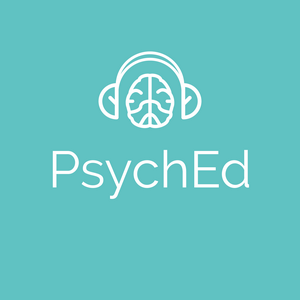
Obtenha a aplicação gratuita radio.pt
- Guardar rádios e podcasts favoritos
- Transmissão via Wi-Fi ou Bluetooth
- Carplay & Android Audo compatìvel
- E ainda mais funções
Obtenha a aplicação gratuita radio.pt
- Guardar rádios e podcasts favoritos
- Transmissão via Wi-Fi ou Bluetooth
- Carplay & Android Audo compatìvel
- E ainda mais funções


PsychEd: Educational Psychiatry Podcast
Leia o código,
descarregue a aplicação,
ouça.
descarregue a aplicação,
ouça.


